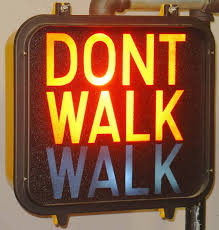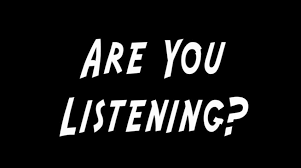
Although these are quoted in reference to Taijiquan practice, I believe these 3 key elements are applicable to all skill-arts......
- 1) Practice in order to learn what tai chi is and make sure all the movements and and ideas are clear.
- 2) Reach the point where one understands tai chi in one's practice.
- 3) Use it freely and experience it at a mysterious and wonderful level.
- Attributed to Chen Changxing - Chen Zhenglei quoted in Tâai Chi The International Magazine of Tâai Chi Ch'uan Vol.21 No.5, October 1997
I had also learned these 3 pillars as:
- 1) Mechanical: Learning and struggling through the rudimentary and fundamental movements. The "learning to walk" phase.
- 2) Technical: Reach a skill where the physical fundamentals and philosophies are understood, and works to consistently apply this Gong Fu in their practice. The student strives to practice, improve and refine their Gong Fu.
- 3) Spontaneous: Skills have been mastered to the point where no thought is involved. Their skills are brought forth instantaneously with no thought of success or defeat. Skills are used freely without pre-planned attack or defense. This is what Bruce Lee describes as "It" hits or "It" moves.
Many beginners in martial arts will set their goals during the "mechanical" phase. While its great to set a goal for yourself in your training, don't try so hard to speed up the process. That would only be like trying to pull up a plant to speed its growth....oh sure, the plant looks taller each time you pull it up to rush it....but eventually you'll pull that plant's roots right out of the ground. 1 While its true that some people are "naturals" in athletics or martial arts, there does come a time where these "prodigies" slow down for a bit as they hit their plateau. By working diligently to plow through the plateau, these skilled people break through a barrier that knows no bounds......where not only their physical skills grow exponentially, but their true understanding of the art as a whole.
Many times, beginners in martial arts are so excited and "Gung Ho" in their first few months of classes. They show great potential, they have the desire to be skilled, Some in fact, become "Dojo gym rats"....always on the training floor, coming to as many classes as they can. But be careful....when burnout hits, it can hit hard. Make your goals realistic....if you're putting aside other important priorities for training, its a possible sign that your goal of gaining skill has turned into a spiral that could possibly smack you into the ground like a tornado if you don't check it.
The hard part for hard-core beginning students, is actually the quest for knowledge. I've been there....checking out all the martial arts books in the library, buying books, magazines, movies....anything that would fuel my hunger for martial arts information and martial arts techniques. I soaked up everything.....But, I didn't get good at Ninjutsu even though I read about it constantly and memorized techniques and terminology. I didn't get good at Tae Kwon Do by merely reading about it. The only way to gain the knowledge, I found out, is to apply your training earnestly.....after a time, the concepts of the other knowledge you've gained will make sense. Academic "book learning" does not put the skill into your body....instead, your blood, sweat, and tears do that!
Students have asked me "How will I know if I'm getting good"? I answer, "Honestly...I think you won't know it when you get to those points." Then they wonder "Those points??" Yes, "those points"...."skill" is a relative term. Once your skill improves, your sights are most likely set to higher skill. You still see yourself as unskilled when comparing to the skill you'd eventually like to see.....and many times you don't see yourself as much more improved now than you were 6 months ago. As those points in time come and go, your outlook of "skill" changes each time. From what I've seen, if you think you're good and are overly proud of how skilled you are, chances are your not all that skilled at all.
Intermediate and Advance students.....keep in mind that the minute you see yourself as "highly skilled", your progress will slow down. Of course you're better at push hands than the beginner...the beginner knows that and they won't be surprised if you find more openings in their play or defeat them in a push hand session. However if you play to just show your skill, you're done...you're progress will be stunted unless you snap out of it and learn to bring the younger student along the "progress path". Remember that "skill" is relative. You were once at the same level as the beginner....and I'll bet you thought you were skilled and much improving back then as well!!
Regardless of where you are in your training, each pillar must have a strong base on which to stand.....only then will the building that is supported by the pillars, stand on its own for years to come.
Study hard, Play Gong Fu well, Be well.
1. "Pull the crops to help them grow" fable http://chinablog.cc/2009/04/pull-the-crops-up-to-help-them-grow/











